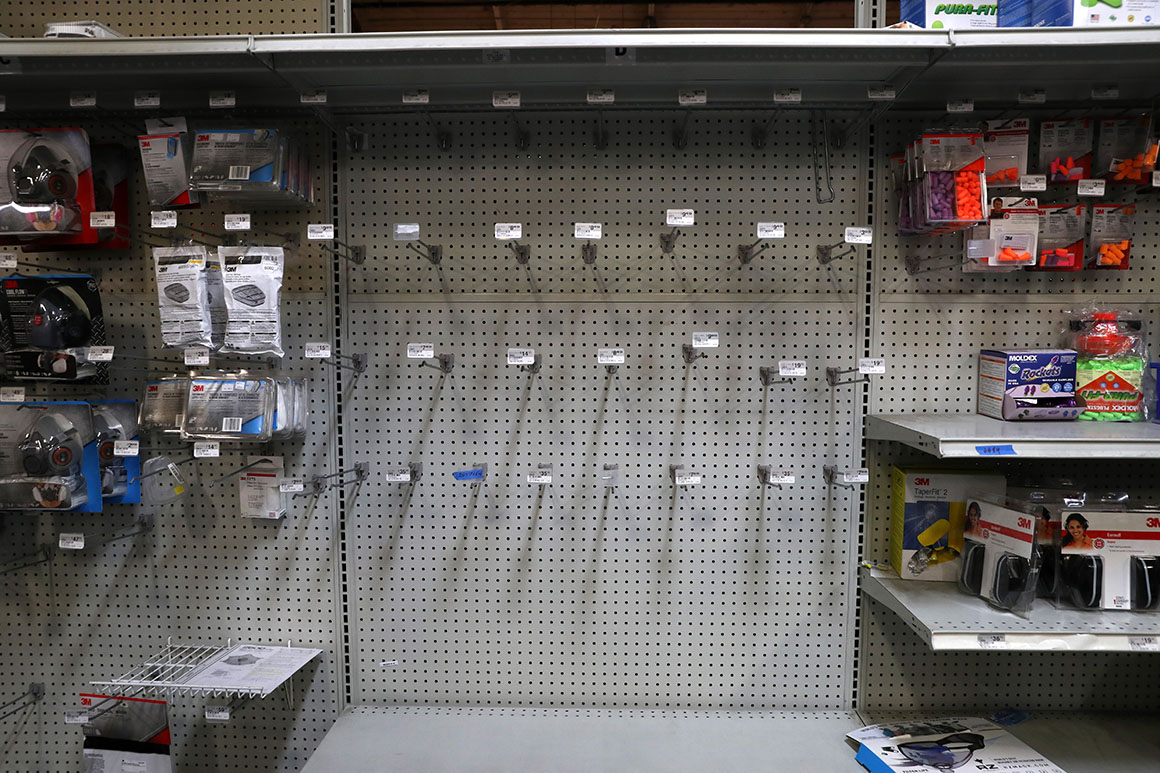
The fight echoes the post-9/11 debate over whether the government should accept liability for anti-terrorism technologies that fail to prevent future attacks or antidotes to anthrax that were produced on a large scale.
Under the 2005 PREP Act, the government assumes the cost of liability claims when it asks companies to provide products in response to a public emergency. But the protection doesn’t apply to items like industrial masks because they’re not regulated by the FDA, according to Charles Johnson, president of the International Safety Equipment Association.
The mask supply is a growing concern for the administration as more outbreaks of coronavirus are being reported in multiple states. The CDC is trying to speed masks to health care workers under an emergency use authorization granted Monday that allows more types of respirators, like industrial masks, to be used in health care settings. The FDA already allows a subset of respirators to be used in health care settings.
HHS this week said the U.S. has about 1 percent of the required respirator masks needed to equip health workers in a full-blown pandemic, estimating the medical system would need as many as 3.5 billion N95 respirator masks in a year.
Administration officials say the lack of liability protections means manufacturers including 3M, Dräger and Moldex could potentially face a wave of individual lawsuits, even for circumstances like someone wrongly wearing the mask and contracting the virus.
At a Thursday visit to 3M in Minnesota, Vice President Mike Pence noted the company can currently only produce 4 million FDA-blessed surgical masks per month. A Pence spokesperson tells POLITICO it is expected that 31 million industrial masks will help meet 3M’s contract with the U.S. for 35 million masks per month. The vice president promised to work with Minnesota Gov. Tim Walz and Congress to extend legal protections to industrial masks intended for patients and health care workers.
„This liability issue makes it harder for the industry to step up and do the right thing when the government asks them to do so,” said Johnson, who supports expanding the PREP Act’s protections. “The masks may be slower to market and into the hands of the people who need them.”
“I have worked alongside manufacturers like 3M, who have a plant in Nebraska, who are working around the clock manufacturing protection devices,” added Rep. Don Bacon (R-Neb.), the lead sponsor of the provision. “Manufacturers must be willing and able to respond in the event of an outbreak — this legislation would have done just that.”
3M officials have said Congress’ failure to include the language in the spending package could lead to hoarding of masks.
The health department has warned that the provision was an important step to enlist the industry to fight coronavirus, said two individuals with knowledge of the deliberations. A White House official confirmed that the administration supported the provision.
“We can’t expect companies to go above and beyond to meet the needs of the American people when they have the looming threat of litigation hanging over their heads,” said one individual with knowledge of the talks.
But Democrats balked at adding the measure. “The committees raised early objections to including an expansive liability waiver in the supplemental and the Speaker agreed,” said a senior Democratic aide.
Congressional aides familiar also say the industry needs to demonstrate evidence that a blanket liability shield is needed in order to make enough masks to fight the coronavirus outbreak. They also said the administration hadn’t actively pushed for the provision, which introduces complications around who’s going to pay to cover liability — and could leave Congress on the hook to come up with the funding.
Source: politico.com
See more here: news365.stream






